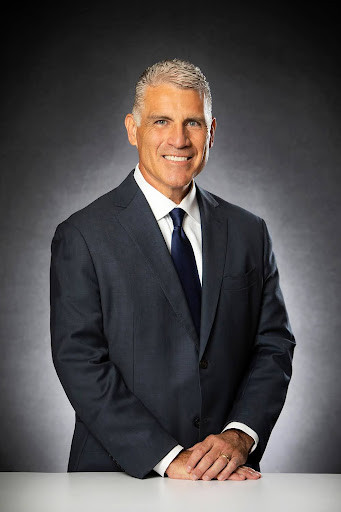How Cancer Forged Fred Diaz's Boardroom Resilience

Fred Diaz built his career on decisive leadership, guiding Fortune 500 companies through high-stakes transitions. As a three-time CEO, including a four-year stint with Ram Trucks, where he increased market share in a fiercely competitive segment from 11.5% to 18.9%, a gain of just 1% being considered a significant victory, he was no stranger to intense pressure. But in 2019, he faced a challenge no corporate playbook could prepare him for: a Stage 3 lymphoma diagnosis.
A New Kind of Battle
"I'm sorry, Fred, you have Stage 3 lymphoma." The words upended Diaz's world. A boardroom veteran accustomed to making tough calls, he now found himself confronting a battle where strategic thinking alone wouldn't guarantee success. What should he do? Bow out gracefully, concede defeat, and leave corporate America to convalesce?
The instinct to fight was second nature. Diaz had always believed in being "humble and hungry," a mantra that had shaped his entire career. It took on new weight as he endured multiple rounds of grueling chemotherapy, balancing his treatment with his corporate responsibilities. Even on the worst days, he refused to step away entirely, showing up and not missing a single board meeting despite heavy bouts of nausea, malaise and fatigue.
Doctors warned him that golf and board meetings would be impossible. "You won't have the energy," his oncologist told him. "You'll feel terrible and have no desire to do much of anything that requires mental or physical stamina." But Diaz wasn't willing to surrender so easily. Two-thirds through his treatment, he made it a point to tell his doctor he had been wrong. "Wrong about what?" the doctor asked. "Golf and board meetings have actually been therapeutic for me," Diaz explained. "Being on the course or in the boardroom, even when I feel miserable, helps me momentarily forget what I'm battling. Besides, I'd rather feel terrible in a boardroom or on the golf course than feel terrible sitting at home on the couch."
That relentless commitment wasn't just about professional duty. It became an additional real-time commitment and lesson in resilience—one that further shaped how he led companies and mentored rising executives.
Lessons From a Cancer Survivor
It's hard to imagine an upside to battling cancer. Yet Diaz experienced an eye-opening realization during this trial. The disease stripped away the distractions, forcing him to focus on what matters most in life. By extension, he gained further insight into what makes an effective leader.
Beyond resilience, Diaz's leadership style evolved in other ways. He grew more attuned to the emotional weight his teams carried. In an industry where metrics and performance dominate conversations, he further prioritized human connection. A junior executive recalls a pivotal meeting where Diaz, in a rare moment of candor, shared, "Own your scars. They'll steady you." The advice stuck, resonating beyond that single conversation.
Redefining Leadership for the Next Generation
As a board member and mentor, Diaz in his own mind is psychologically intuitive about sharing cancer's lessons, refining and galvanizing his leadership approach. He advises leaders to manage pressure effectively while staying true to themselves, balancing authenticity with confidence.
His mentees point to a defining trait: the ability to navigate crises with both composure and conviction. "He doesn't just talk about resilience," says one colleague. "He's lived it in a way that gives his leadership real gravity."
For Diaz, the takeaway is clear. Adversity hones a true leader's edge. From the hospital room to the C-Suite, the ability to adapt under pressure sets winners apart.
© Copyright IBTimes 2024. All rights reserved.





















